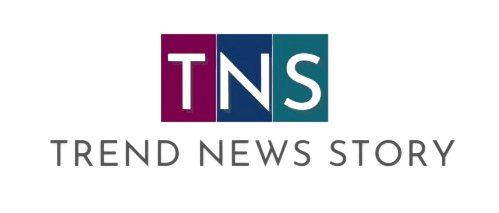Introduction:
Have you ever wondered how artificial intelligence- AI in HR is shaping the hiring process? With technology advancing rapidly, it’s natural to question its role in HR and recruitment. While automated tools undoubtedly offer efficiency, many wonder if they’ll overshadow the human touch in hiring decisions. It’s a valid concern, considering the complexity of evaluating candidates beyond what algorithms can discern.
However, AI isn’t here to replace HR professionals; it’s here to enhance their capabilities. By integrating AI into HR practices, companies aim to streamline processes and gain insights that improve decision-making. Yet, the expertise and intuition of human resources professionals remain invaluable in understanding nuances that algorithms might miss.
In this blog post, we’ll explore the evolving landscape of AI in HR and its impact on hiring practices. We’ll delve into how these technologies are transforming recruitment while emphasizing the importance of maintaining the human element in decision-making processes. Join us as we navigate through the intersection of AI and HR, and discover how embracing both can revolutionize the way we hire.
AI and the Modern Hiring Process
It’s hardly surprising that AI has woven its way into nearly every facet of our lives, including the job market. Companies are increasingly turning to AI-powered solutions for their recruitment needs, with a whopping 55% investing more in automated recruiting tools, as highlighted by data from Predictive Hire, a provider of smart candidate interview services. This shift isn’t just about cutting costs; it’s about maximizing efficiency.
In the realm of human resources, AI is proving to be a game-changer, particularly for understaffed departments. According to Predictive Hire, 56% of people agree that automated tools alleviate some of the administrative burdens faced by HR professionals. But it’s not just about making life easier for HR; AI can also play a pivotal role in finding top-tier talent and speeding up the hiring process, as noted by Forbes.
By leveraging AI in the recruitment process, companies can uncover high-quality candidates more efficiently than ever before. This not only saves time but also ensures that organizations can secure the best talent to drive their success. From sourcing candidates to screening resumes, AI is revolutionizing the way hiring managers operate, ultimately benefiting both recruiters and job seekers alike. AI is poised to become an indispensable tool across all industries, redefining the landscape of talent acquisition and reshaping the future of work.
How Is Artificial Intelligence Changing the Recruiting Process?

Recruitment has come a long way since the days of scanning the classifieds in the local newspaper. With the internet at our fingertips, job seekers can now easily browse and apply for positions in just a few clicks. But as the digital landscape evolves, so too does the way companies find and hire talent, thanks to artificial intelligence.
According to Dataconomy, AI is revolutionizing the recruitment process in several key ways:
Firstly, HR professionals can now sift through a mountain of resumes in record time, thanks to automated tools. This saves them from endless hours of manual scanning, allowing them to focus on more strategic tasks.
Secondly, AI tools are adept at pinpointing the most suitable candidates by honing in on specific keywords and phrases. This means HR reps can quickly identify individuals whose skills and experiences align closely with the job requirements.
Perhaps most importantly, AI can be programmed to remain unbiased, devoid of any opinions based on gender, race, or age. This helps mitigate the risk of personal bias influencing hiring decisions, promoting fairness and equality in the recruitment process.
It’s worth noting that AI hasn’t replaced the human touch in recruiting; rather, it complements it. By streamlining and enhancing the hiring process, HR professionals can respond to candidates more promptly, and companies can fill vacancies more efficiently. This translates to quicker responses for qualified job seekers and faster staffing for hiring companies. In essence, AI is reshaping the way we recruit and hire talent, making the process more efficient, fair, and ultimately beneficial for all parties involved.
How Is AI Changing Human Resources?
The way job seekers interact with recruiters and hiring managers has evolved significantly in recent years. Gone are the days of mailing in resumes; instead, candidates now submit their applications through email or online portals. Platforms like LinkedIn, Glassdoor, and Indeed have become go-to destinations for job seekers, offering a vast array of opportunities tailored to individual experiences.
What’s interesting is how AI is seamlessly integrated into these platforms, revolutionizing the recruitment process. Not only do they help job seekers find relevant opportunities, but they also assist hiring companies in identifying candidates who closely match their job requirements.
Take resumes, for example. Instead of manually sifting through countless applications, AI-powered tools can analyze resumes and applications at lightning speed. This not only saves recruiters time but also ensures they can focus on engaging with the most promising candidates.
Furthermore, AI algorithms can match candidates with job postings based on their skills, experiences, and preferences. This means job seekers are more likely to come across opportunities that align with their career goals, while hiring companies can quickly identify potential fits for their roles.
In essence, AI is reshaping the landscape of human resources by streamlining the recruitment process for both job seekers and hiring companies. With the help of these advanced technologies, finding the right talent has become more efficient and effective than ever before. And as AI continues to evolve, its impact on human resources will only grow stronger, driving innovation and improving outcomes for all involved.
3 Ways to Keep the Hiring Process While Using AI Strategies
As companies integrate AI into their HR processes, it’s essential to strike a balance between technological advancement and human interaction. While AI can streamline the hiring process, it’s crucial not to lose sight of the human element.
Here are three strategies to maintain the human touch in HR while leveraging AI:
1. Establish Clear Policies for AI Integration:
Organizations should set policies to govern the use of AI in recruitment and hiring. Transparency, fairness, and accountability should be central to these policies. It’s important for everyone involved to understand that AI is a tool to support human decision-making, not replace it. By defining ethical guidelines, companies can ensure that AI enhances, rather than detracts from, the hiring process’s human aspect.
2. Address Bias in AI Systems:
Although computers themselves aren’t biased, human programmers can inadvertently introduce biases into AI algorithms. When adopting AI recruiting platforms, it’s crucial to inquire about measures taken to mitigate bias. Providers should implement safeguards such as psychological profiling and predictive analytics to counteract biases related to gender, race, age, and socio-economic status. By actively addressing bias, organizations can promote fairness and equality in their hiring practices.
3. Recognize the Role of the Human Resources Team:
While AI can automate many aspects of hiring, it’s essential to acknowledge the irreplaceable role of the human resources team. HR professionals bring invaluable qualities like empathy, integrity, and ethical judgment to the hiring process—traits that AI cannot replicate. Interpersonal skills are often critical indicators of a candidate’s fit for a role, and only human judgment can discern these nuances. While AI can assist in screening and sorting candidates, it’s ultimately HR professionals who must engage with candidates on a personal level and make informed hiring decisions.
What Is Next on the Horizon for AI in Recruiting and Hiring?
As technology advances, AI continues to play a pivotal role in refining the recruitment and hiring process. One of the most anticipated advancements is the ability of AI to facilitate better data-driven decision-making.
Here’s how data-driven recruiting is set to enhance the quality of hires:
1. Enhancing the Hiring Funnel:
AI enables hiring managers to identify issues within the hiring process more effectively. For instance, anomalies in the number of completed applications between different hiring rounds can signal potential issues with the application process or the overall recruitment strategy. By leveraging AI-generated data, communication leaders and hiring managers can pinpoint areas for improvement and optimize the hiring funnel for better outcomes.
2. Optimizing Budget Allocation:
The data gathered by AI provides valuable insights into the most effective channels for attracting top talent. Whether it’s social media advertisements, recruitment platforms, or job portals, AI can analyze historical hiring data to determine which channels yield the highest-quality candidates. This allows hiring managers to allocate their budget more strategically, ensuring maximum exposure and return on investment. By investing resources in the most productive channels, companies can attract a larger pool of qualified candidates and make more informed decisions throughout the recruitment process.
Conclusion: AI in HR Is Changing Hiring
In conclusion, as AI continues to advance, its integration into the recruitment and hiring process holds immense promise for organizations seeking to streamline their talent acquisition efforts. By harnessing the power of AI-driven data analytics, companies can enhance their hiring funnel, identify areas for improvement, and allocate resources more effectively.
Moreover, AI enables hiring managers to make more informed decisions based on objective data, leading to better outcomes and a more efficient hiring process overall. However, it’s crucial to remember that while AI can automate many aspects of hiring, the human element remains indispensable. HR professionals bring unique skills and insights to the table, ensuring that candidates are evaluated not just on their qualifications, but also on their fit within the company culture and values.
Therefore, as we look to the future of AI in recruiting and hiring, it’s essential to strike a balance between technological innovation and human expertise, leveraging AI as a tool to support and enhance, rather than replace, the human touch in HR practices.

